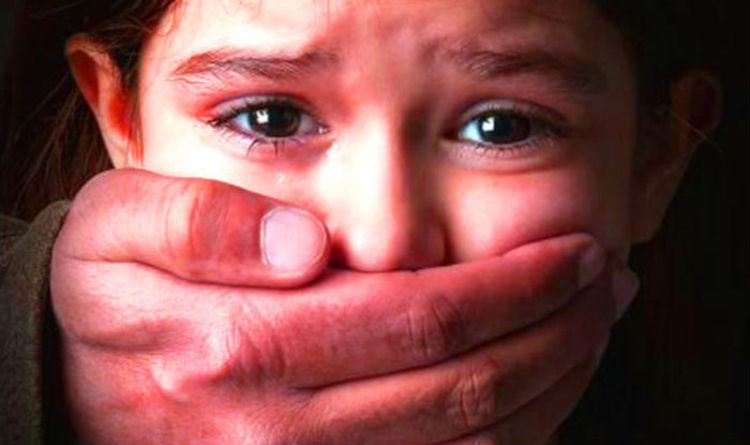The role culture plays in child rape

Nick Mangwana View from the Diaspora
SEXUAL abuse of children is not only a stubborn scourge, but a sensitive subject because people don’t want to accept that it’s widespread. They want to score cheap political points than accept that this thing has been there for a long time and is ingrained in our culture. The interpretation of that norm is the only thing that’s different. Let’s look at a real case, which a lot will identify with.
It is the month of August and an 18-year-old A-Level pupil leaves Harare on a bus to visit his Form Three, 15-year-old “girlfriend,” who is on holiday in Mhondoro.
He hangs out at Mubaira Growth Point where his girlfriend joins him.
They hang out, have a lot of fun. What they call fun is a few laughs, a few snacks, just hanging out and enjoying each other’s company. All this is completely innocent and no hanky-panky.
Her younger brother sees them and, rushes home. To get one over his sister, he tells his father.
The father sees red and brandishing a leather thong used for strapping oxen to the yoke, goes to the township baying for blood. He finds the two huddled whispering to each other’s ears. There is pandemonium as he is like a bull in a China shop. Anyway, to cut a long story short, he tells his daughter that if she comes home she is dead-meat.
He says that she is behaving like someone, who has her mind on marriage, therefore, she should now go with her “boyfriend”.
She is scared of her father and the two are on the next bus to Harare.
For the first three months she uses the girls’ bedroom with other girls in her new family. Emissaries are sent to Mhondoro to try to resolve the issue amicably. There is no breakthrough until money changes hands. After this she became a 15-year-old wife. Now this is a real life story.
It is one of many where parents tell their minor daughters to go back where they had been for breaking the family curfew by a few hours (dzokera kwawangauri). The girls end up paying for their one-time mistake for the rest of their lives. It is part of our culture. But it has caused some institutionalised child rape.
Our customs have practices that mulch a fertile ground for child rape.
There is not enough space to cover examples such as the pledging of a young girl to an old man in marriage in return for food (kuzvarira), or the use of young girls to appease an avenging spirit (kuripa ngozi).
But if we have to adequately protect our girls, especially in rural areas, we should not normalise these attitudes in our communities and society. It is a brazen attitude towards child rape.
But this societal attitude is not only a problem in Zimbabwe or Africa. It was prevalent in the United Kingdom and other jurisdictions that’s why we are now having people being prosecuted for the crimes they committed more than 40 or so years ago.
In some cases, people are using today’s attitudes to interpret the events of yesteryear. Others see this as wrong and some kind of revisionism. But to the victims this is not a question of interpretation or attitude. It is simply heinous crimes, which were perpetrated against them going unpunished.
It is also a question of trying to radically shift societal attitude because things that used to be ignored cannot be acceptable now. But they have a very good welfare system. We don’t.
Our African culture allows a lot of our children to be looked after by a network of either families, or people with familial links with the children. This is a noble “everyone’s child” culture and practice. The only problem is that there are no inbuilt safeguards against abuse.
More children are abused by people within families, people they trust than by strangers. They don’t report it because the consequences of doing so might result in losing a home, an education and support. The formal care system is not robust enough to catch these victims.
No matter how we interpret sexual abuse, it is there and it has been there. An example is the fondling or inappropriate touching, which was acceptable in chiramu.
Our Shona culture pronounces a young sister-in-law or in the case of an aunt, a young niece, a child a mini-wife.
The banter between the much older brother-in-law and the pre-pubescent child is only acceptable if there is no physical contact. But once you introduce touching it is abuse.
Some rightly question the mini-wife language whether it mars the child’s innocence and disempowers them when the uncle or brother-in-law goes beyond the acceptable banter. After all if she is some kind of wife it tampers down the outrage when he makes an inappropriate physical contact with the child.
Our communities have a lot of infrastructure, but this writer can’t remember any that is embedded to kick in automatically when fathers or uncles are abusing their child or ward. On the contrary, the under-reporting of these cases suggests an inbuilt customary infrastructure to protect the perp rather than their victim.
Issues like child incest have always been handled by families and everyone looks at the interests of the whole family and would be reluctant to send the main bread winner to prison and condemn the rest of the family to destitution.
This leaves a lot of sexual abuse within family to go unreported. The institution of the family has colluded with the abuse of the child in order to protect its fabric.
It is right that the nation at large including Zimbabweans in far off lands showed a lot of revulsion and attitudes to what was recently reported in the media regarding Epworth.
It is noted that there were a lot of lies and fabrications in that case, but what it did was to bring a burning issue to the fore of our attention.
All those children, who are reported to be going through child sex slavery have families, neighbours and society, which has a responsibility towards them.
Child sexual abuse is not only via prostitution; it is happening in families. So it was right to express revulsion and outrage towards the commercial sexual exploitation of children, but it would yield more and better results if all empowered and outraged people address this in their families.
The tenacity of one Mr Maramwidze comes to mind. A high profile pervert is now behind bars. He probably had found moral justification within our customs.
Truth is we have cultural or customary practices that are harmful to children. We are only showing our disgust when this abuse is commercialised like in the fake Lady Bee case.
This is where we want to draw the line. This column is not going to go into the psychopathology of the victims of this abuse, but suffice to say that a lot of people are walking around totally damaged by what happened to them when they were young.
Teachers have always been known to have sexual deviants among them.
Every reader is asked to think back in their primary school. In the seven years of your primary school, how many girls do you remember failing to finish Grade Seven because some teacher or adult had had their way with them?
The Government has to bear some responsibility in this. But its response in Epworth when local MP Honourable Makari pleaded with it was tremendous. And it would be remiss to ignore efforts already taken by the State to address this problem.
The approach to empower the girl child through awareness in schools was a good one. The ratification of many United Nations conventions on the matter should also be applauded.
However, there is much more, which needs to be done. There is a need for a more robust institutional framework to protect children. An ongoing surveillance system such as Unit or Taskforce, which comprises staff from Social Welfare and police will go a long way.
Economic hardships are certainly a big factor in child abuse, but it only flourishes because it finds a ready fertile ground in our culture.
While some of these practices like “kuzvarira” are no longer prevalent, they desensitised us to the commodification of our own children in times of hardship.
They programmed us to view our own children as a potential resource and not just a person with her own life to live. Therefore, when the gender of the child is commercialised we show outrage, but ignore the foundations of such a view.
This piece is not suggesting that there is something inherently wrong with our culture, but it would be blatant denial to say our cultural attitudes towards our women and children do not need tweaking if not an overhaul.
Our Constitution says that, all customs and cultural practices that subjugate women should be deemed to be in contravention of the law.
One cannot address issues of child sexual exploitation without addressing issues of gender parity and our attitudes towards women. This is because it is primarily the girl child, who is sexually exploited, and who is also a victim of child rape.
Yes, we do have cases of sodomy against boys, but those are comparatively few and far between and do not have a nest of customary acceptability to fall back on.







Comments